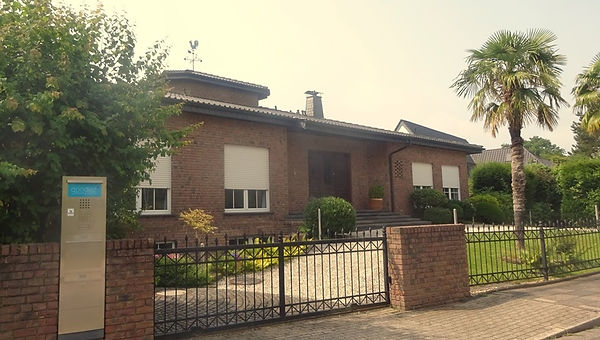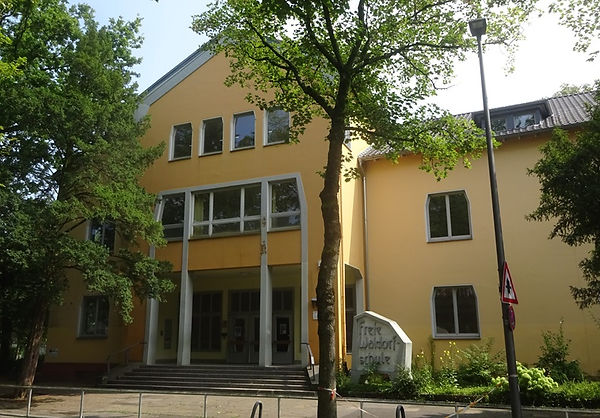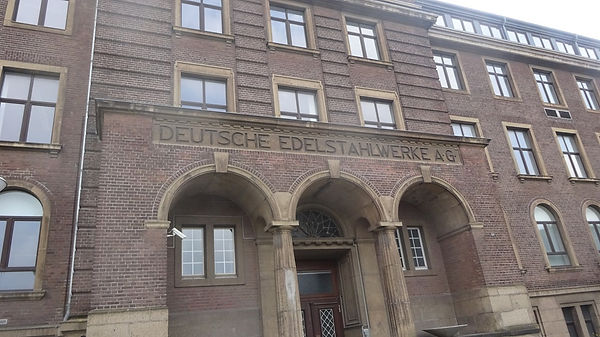Through Krefeld with Reiner Schürmann

…what could be called ontological anarchy—expressed at this juncture by the concept of "life without why," is borrowed from Meister Eckhart (p. 10)
…instead of a straightforward identification between Führer and right, anarchy. (p. 14)
R. Schürmann, Heidegger on Being and Acting (1987)
The cosmopolitan philosopher Reiner Schürmann was born in Amsterdam in 1941 to German parents, who moved back to Germany in 1946. He grew up in Krefeld, a small city close to Düsseldorf. Schürmann was a professor at the New School in New York and still has a strong impact in the field of Continental Philosophy. He died in 1993 in New York from Aids.
The fact that Schürmann was born only six kilometers away my own birthplace has always intrigued me. Schürmann left Germany at age 20 and went to France. So did I, except that I went 23 years later. In 1981 Schürmann received a doctoral degree from the Sorbonne and wrote almost his entire later work in French; I got a maîtrise from the Sorbonne and got my doctorate from England.

Krefeld is a city on the borders of the Ruhr and has today 230,000 inhabitants. In his novel Les Origines, Schürmann talks about his childhood, which is marked by immediate postwar experiences of an occupied Germany, traumatic discoveries of past atrocities, and German guilt. Being born much later, I cannot relate to this very strongly. In the novel, the name Krefeld appears only once towards the end of the book, but Schürmann delivers descriptions of places in the book’s first part.
Krefeld is known as the "velvet and silk city," which is due to the silk production that started in the Middle Ages. The von der Leyen family, ancestors of Ursula von der Leyen’s husband, developed the city into a European silk center, selling silk even to the court of Louis XIV. There is a Von-der-Leyen Square in Krefeld, and ancestor Conrad von der Leyen built himself a residence that resembles the White House in Washington, and which is today the City Hall.


On the Wikipedia page “Sons and daughters of the city of Krefeld” Schürmann’s name is not listed, probably because he was born in Amsterdam.
According to the city register, the Schürmann family lived on Heyenfeldweg 93, a rather posh area. Reiner’s father Max Schürmann was the director of the important Thyssen-owned "German Stainless-Steel Works" (Deutsche Edelstahlwerke), and the modern villa with its gravel driveway and a dome is worthy of what can be expected from a CEO.


In front of the villa: frankly, the only palm trees I have ever seen in the Ruhr.

“I fled Europe as one flees one’s parents’ house: with an insincere effort to laugh at the barbecue set, the patio and the two-car garage.” (Les Origines)

Schürmann went to the Waldorf School on the Kaiserstrasse, which was founded in 1947.
In Les Origines, Schürmann reports that he grew up on the premises of his father’s factory on Gladbacherstrasse 578, which is unlikely and might be partially fictional as the family was never registered there. But it is not impossible that they lived there for a short while and that he spent much time there.
Schürmann mentions explosive mines and skeletons of forced laborers that could still be found in the basement of a facility. There were indeed – as documented – 1200 forced laborers lodged on the premises of the Edelstahlwerke during WWII. As German men were drafted into the army, workers from the Soviet Union were lured into German factories.

Laborers were kept on the factory premises behind barbed wire (now a normal fence).
_JPG.jpg)
Even today the factory looks like a concentration camp.
Max Schürmann started working for this company only after the war.
Schürmann narrates that he had lived in a factory building that had once served as a police station of the Gestapo, and that unruly workers had been tortured in that same house. If this is true, it is most likely that it took place in this building:


The iconic administrative building of the factory from 1929 will soon be rehabilitated and contain restaurants and sport facilities.
Parts of Schürmann’s autobiography are fictional or "côtoyent le précipice d'une écriture hallucinée," as writes Juan Asensio. His mother’s name was not Anna but Emmy. Towards the end of Les Origines Schürmann says that he was "clinging to a train leaving the burning city of Krefeld." This is metaphorical because Krefeld never burned during Schürmann’s lifetime.
But there is perhaps more to it than a simple attempt at being metaphorical. Could the contrast between Schürmann’s luxurious villa and the austere Edelstahlwerke, between the socially accepted and the immoral recent past, both of which seem to be this philosopher's "homes," be at the origin of a philosophy for which evil is simply “the denial of what tears us away from the world"? (F. Dastur) For which evil is the denial of the train that tears us away?
This hypothesis would make Krefeld the “différent originaire” that Françoise Dastur designates in her preface to Les Origines as “proving to be anarchic because [it is] in intimate dissension with itself.” Schürmann’s childhood would thus perfectly comprise what Derrida defines as “the original complication of the origin;” and Schürmann's philosophy would be an attempt at serenely inhabiting the différance that had been laid out before him on an urban scale in Krefeld.


"Fire becomes for-(it)self and is lost; yet worse since better," writes Derrida enigmatically in Cinders. Clinging to the train while Krefeld is burning though it is not burning is a strong image. And just like the fire is a non-fire, the train that seems to tear us away from the Nazis, from two-car garages, and from von der Leyen is not really tearing us.
My thanks go to Mr Michael van Uem from the Krefeld City Archive.
Philosophy Today, Fall 2024, Special Issue Reiner Schürmann





